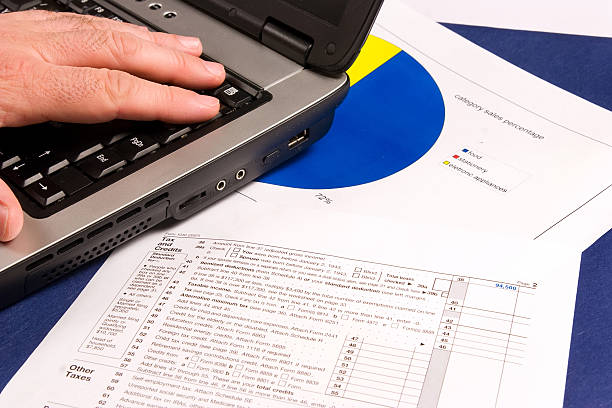In the modern age, where technology constantly reshapes how we conduct business, industries must adapt to more efficient practices. Record-keeping has seen a significant transformation, particularly in the context of permits and licenses. Traditional paper systems have been the norm for decades. Still, the emergence of digital permit books is revolutionizing how businesses manage their keys. This article explores the pros and cons of “Digital Permit Books vs. Traditional Paper Systems.”
The Need for Efficient Record-Keeping
The Burden of Paper Records
Traditional paper systems for permits and licenses are often plagued by inefficiency and inaccuracy. Businesses and government agencies deal with heaps of paperwork, making locating, updating, and managing tickets cumbersome.
The Quest for Streamlined Solutions
The need for a more streamlined and efficient approach to record-keeping has never been greater. This is where digital permit books come into play.
Understanding Digital Permit Books
A Digital Revolution
Digital permit books are electronic databases that store permit information securely in a digital format. They enable real-time access, update, and sharing of permit data, replacing the need for physical paper documentation.

User-Friendly Interface
These digital systems are designed with user-friendliness, making them accessible even to those without extensive technical knowledge.
The Drawbacks of Traditional Paper Systems
Inefficiency and Delays
Traditional paper systems often lead to inefficiency, causing delays in processing permits, and they are susceptible to errors.
Limited Accessibility
Paper records are confined to physical locations, making accessing permit information remotely or in emergencies challenging.
Benefits of Digital Permit Books
Enhanced Data Accessibility
Digital permit books provide instant access to permit data from anywhere, improving efficiency and allowing for quicker decision-making.
Improved Safety Measures
These systems can enhance safety by ensuring that permits are up-to-date, reducing the risk of accidents due to outdated or missing passes.
Environmental Impact
The transition to digital permit books also aligns with environmental goals by reducing paper waste and promoting sustainability.
Cost-Effectiveness
Digital permit systems can save businesses and government agencies money by eliminating the costs associated with printing, storage, and manual data entry.
Portability and Convenience
Digital books can be stored in a single device, making them easy to carry, particularly for travelers. An entire library fits snugly in your pocket, granting unparalleled convenience.
Accessibility and Versatility
E-books provide access to an extensive array of titles at your fingertips. Font size, style, and background color can be adjusted to enhance readability, catering to individual preferences.
Eco-Friendly Reading

The environmental impact of digital books is significantly lower than that of paper books. They save trees, reduce emissions, and diminish the need for physical storage.
What Sets Digital Books Apart?
Interactive Features
Many e-books offer interactive elements, such as hyperlinks, multimedia content, and quizzes, enhancing the learning experience.
Adjustable Text and Lighting
E-books allow you to change font size style and adjust backlighting for comfortable reading in different conditions.
Searchability
Digital books have a search function that enables quick access to specific information, making them valuable for research and academic pursuits.
Are Physical Books Still Relevant?
Nostalgia and Sentiment
For some, nothing can replace the sentimental value of a well-worn, cherished book. The act of turning physical pages holds a unique emotional connection.
Academic and Professional Use
Physical books are often preferred in academic and professional settings due to citation standards and a familiar format for study materials.
The Joy of Gifting
Physical books make excellent gifts, as they can be personalized and are often considered more thoughtful than e-books.
Factors Influencing the Choice
Age and Generation
Younger generations tend to gravitate toward digital books, while older generations often prefer the comfort and nostalgia of paper books.

Purpose of Reading
The choice between paper and digital books may depend on whether one reads for leisure, education, or professional development.
Environmental Concerns
As the importance of sustainability grows, individuals may opt for digital books to reduce their carbon footprint.
The Future of Reading
Digital Dominance?
While digital books are on the rise, physical books are unlikely to become obsolete. Coexistence and choice will define the future of reading.
The Coexistence of Formats
Both formats will continue to exist, each catering to different preferences, ensuring a rich and diverse reading landscape.
A Personal Choice
Ultimately, the decision between paper books and digital books is a matter of personal preference. Readers should embrace the format that best suits their needs and resonates with their hearts.
Transitioning from Paper to Digital
Navigating the Shift
Transitioning from traditional paper systems to digital permit books requires planning, training, and integrating new software and hardware.
Challenges in Adopting Digital Permit Books
There may be resistance to change, concerns about data security, and the initial cost of implementing digital systems.
Case Studies: Success Stories
Industry Examples
Highlight successful cases where organizations and government agencies have benefitted from adopting digital permit books.
ROI and Efficiency
Discuss the return on investment and improved efficiency experienced by these organizations.
SEO Optimization for Digital Permit Books
Enhancing Visibility
Explain how optimizing digital permit book content can improve online visibility, helping businesses attract more clients.
Keywords and Metadata
Discuss using relevant keywords and metadata to make digital permit books more discoverable.
Why Paper is Better Than Digital?
Many enthusiasts argue that paper books offer a unique and irreplaceable experience when it comes to reading. The tactile sensation of holding a physical book in your hands is often cited as a reason why paper is better than digital.
The act of turning pages, the rustling sound, and the feeling of progress as you physically see the pages diminish add to the overall charm of traditional books. For some, the smell of an old book and the weight of the pages are cherished aspects of the reading experience that digital simply can’t replicate.
Conclusion
In conclusion, shifting from traditional paper systems to digital permit books marks a significant step toward efficiency, safety, and sustainability. Businesses and government agencies can significantly benefit from embracing this technological evolution.
Frequently Asked Questions
Are digital permit books secure?
Yes, digital permit books have robust security features to protect sensitive information.
How can I transition from paper to digital permit systems?
Transitioning requires planning, training, and investing in the right technology.
Are digital permit books cost-effective?
Yes, digital strategies can save money in the long run by reducing paperwork and manual processes.
Can I access digital permit books remotely?
Yes, digital permit books can be accessed from anywhere with an internet connection.
What are the environmental benefits of using digital permit books?
Digital permit books reduce paper waste and contribute to ecological sustainability.




